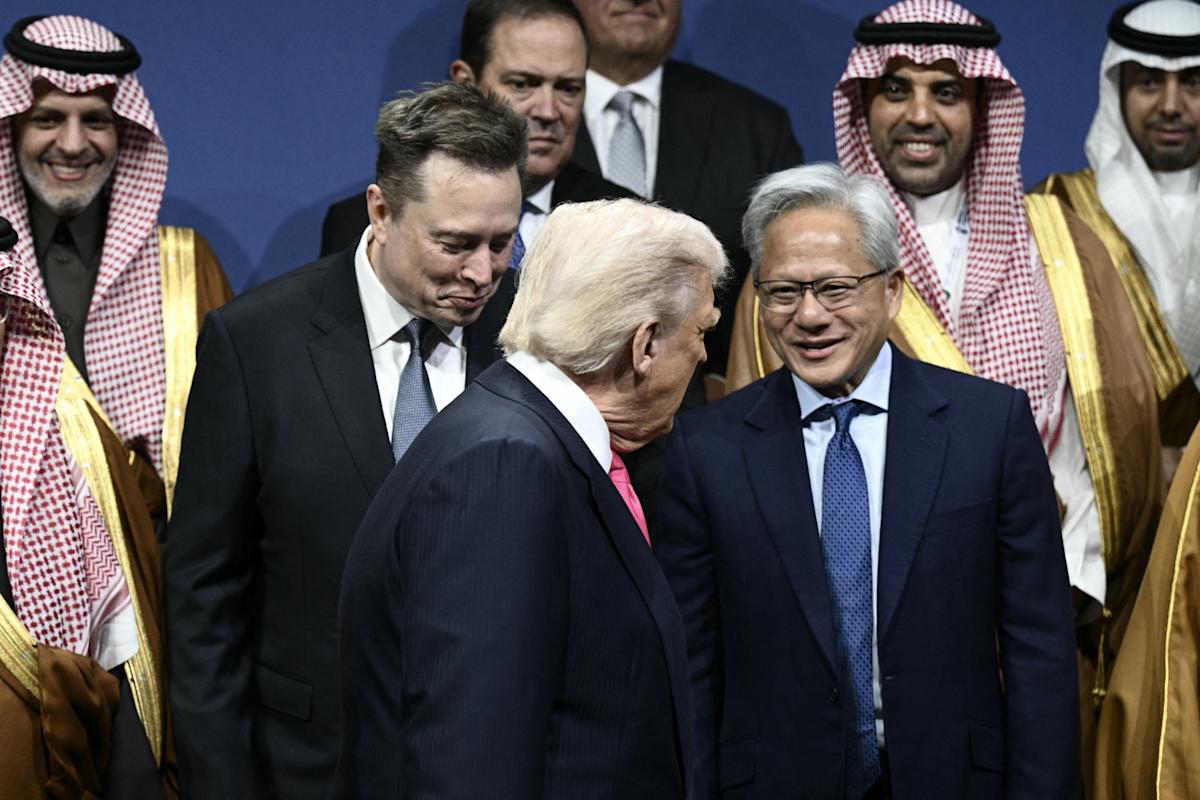Trump Plans ‘Genesis Mission’ to Boost US AI Development
US President Donald Trump, Elon Musk, center left, and Nvidia Corp. CEO Jensen Huang, center right, at the US-Saudi Investment Forum in Washington on Nov. 19.
(Bloomberg) — President Donald Trump plans to roll out a “Genesis Mission” as part of an executive order to boost US artificial intelligence efforts on Monday at the White House, according to a Department of Energy official.
Most Read from Bloomberg
The effort is intended to signal that the Trump administration sees the coming AI race as important as the Manhattan Project or space race, Department of Energy Chief of Staff Carl Coe said Wednesday at the Opportunities in Energy Conference in Knoxville, Tennessee.
“We see the Genesis Mission as equivalent,” Coe said.
Coe declined to provide additional detail, but said the order would likely direct national labs to do more work on emerging AI technologies and could involve public-private partnerships. A White House official, speaking on the condition of anonymity, said that discussion about potential executive orders was speculation until officially announced.
The Trump administration is also preparing a separate executive order for the president’s signature that would allow the Department of Justice to sue states over artificial intelligence regulations it deems unconstitutional, and threaten funding cuts to states with AI laws considered too burdensome or restrictive.
The push comes after Trump this week greeted Saudi Crown Prince Mohammed bin Salman for a series of meetings at the White House, with a focus on finalizing defense and economic deals. As part of those deals, Trump said he would approve the sale of advanced AI chips to the kingdom, while Nvidia Corp. and Elon Musk’s xAI announced plans to develop a data center with the Saudi-backed AI venture Humain.
At a Saudi investment conference on Wednesday, Trump said he would work with partners “to build the largest, most powerful, most innovative AI ecosystem in the world.”
“And we are going to work it so that you’ll have a one approval process to not have to go through 50 states,” Trump said, adding that a patchwork of state-level regulations would be “a disaster” because business could be derailed by “one woke state.”
On Tuesday, Trump called on lawmakers to pass a federal standard governing artificial intelligence either in an upcoming defense spending bill or as standalone legislation.
“If we don’t, then China will easily catch us in the AI race,” Trump said in a social media post.



Leave a Comment
Your email address will not be published. Required fields are marked *